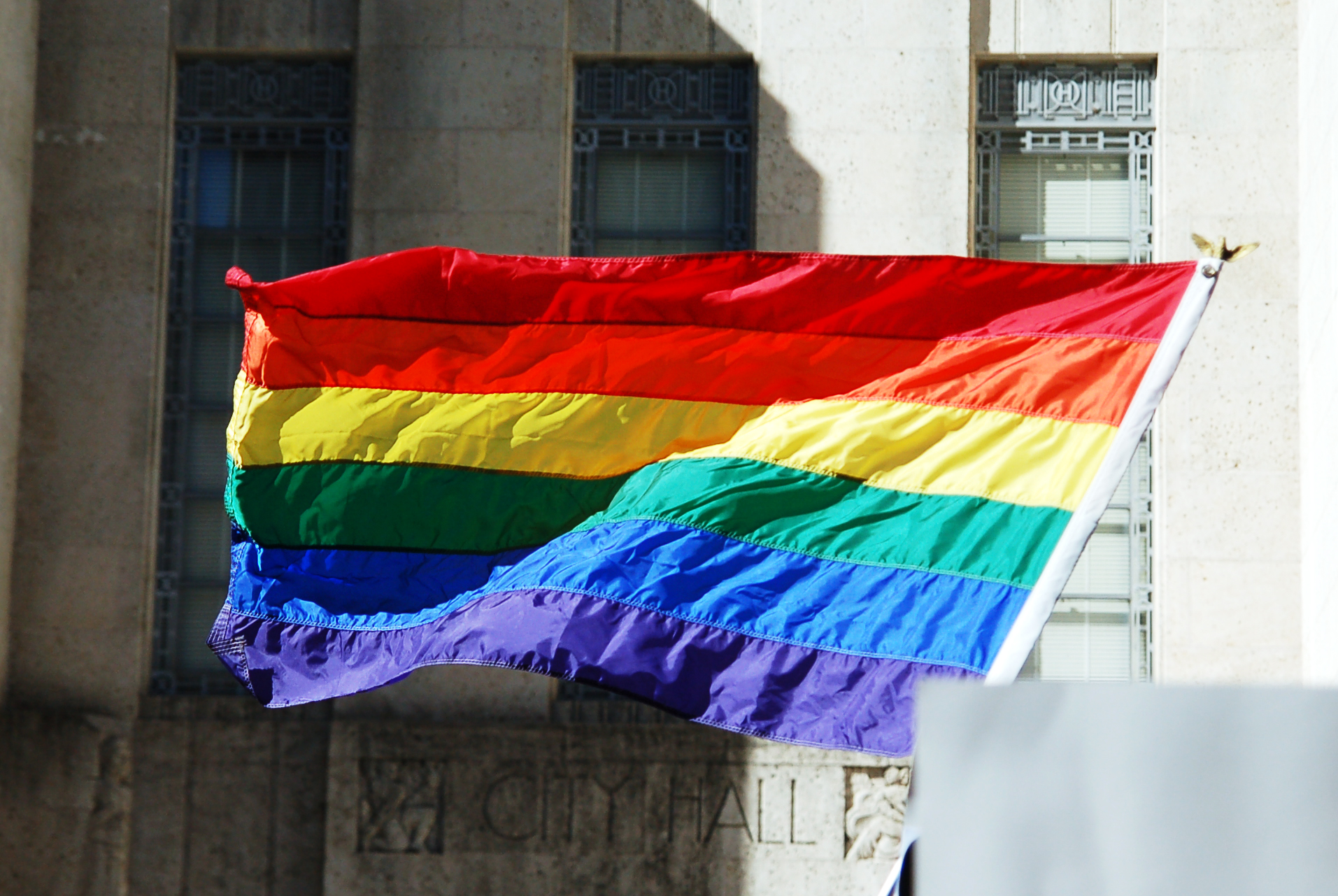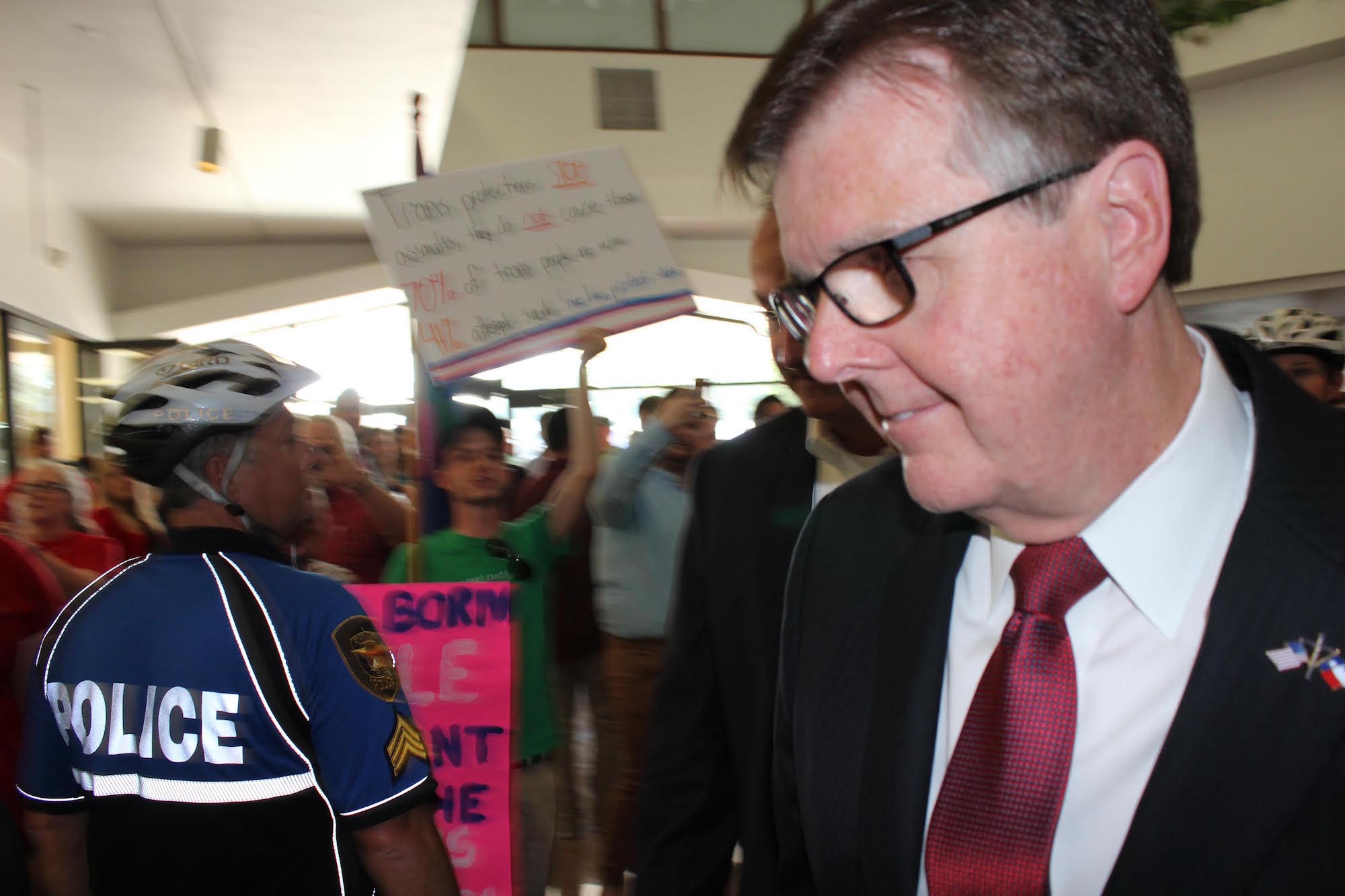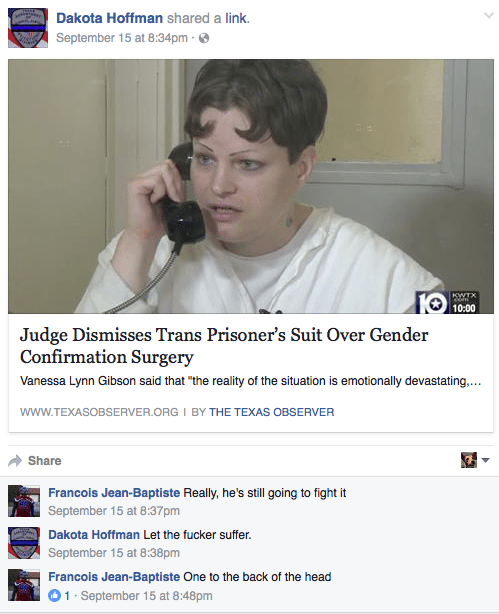
Will Texas Heed Backlash Against North Carolina’s Anti-LGBT Law?
LGBT business advocates fear Texas could take a hit if lawmakers propose a North Carolina-style 'religious liberty' law.

Texas business leaders and LGBT advocates hope economic backlash over an anti-LGBT bill in North Carolina will deter lawmakers from taking up similar legislation next year in Austin.
More than 100 CEOs and business leaders, including Apple’s Tim Cook and Facebook’s Mark Zuckerberg, sent a letter this week to North Carolina Governor Pat McCrory calling on the General Assembly to repeal House Bill 2, which he signed last week.
The bill prohibits cities from enforcing LGBT-inclusive nondiscrimination ordinances, and bars transgender people from using restrooms and other facilities according to their gender identity.
Similar measures were introduced in Texas last year, but died without hearings.
“We certainly don’t want Texas to appear to be unwelcoming for future talent, and that’s what I think we’ll get if something like North Carolina’s bill is taken up by our Legislature,” said Chris Wallace, president of the Texas Association of Business (TAB), the state’s chamber of commerce.
Last year, TAB came out against a sweeping anti-LGBT “religious freedom” bill, but didn’t take a position on proposals to ban local nondiscrimination ordinances or restrict restroom access for trans people. However, Wallace said TAB’s board may consider doing so at a September meeting where it will set its legislative agenda for 2017.
“Talent availability is the number one issue among businesses today in Texas,” he said. “We’ve got to make sure we have future employees, and we don’t need any issues like this getting in our way.”
Governors in Georgia and North Dakota recently vetoed anti-LGBT legislation in the face of opposition from the business community. But McCrory, who’s up for re-election, has dug in his heels, referring to criticism as “political theater” and “political correctness run amok.”
McCrory’s resolution in the face of criticism has prompted LGBT advocates to wonder whether Texas Governor Greg Abbott would take the same tack if similar legislation were to reach his desk.
“I don’t want it to have to come to that point,” said Chuck Smith, CEO of Equality Texas. “It advanced in North Carolina because the extremists were in control. Are there extremist elected officials in the state of Texas? There are, so do I expect that something like this will be filed [in 2017]? I certainly believe that it will.”
By then, though, Smith hopes lawmakers will be wary of facing business opposition to “extremist legislation that specifically targets LGBT people for discrimination.”
Jessica Shortall, managing director of the pro-LGBT business coalition Texas Competes, said 700 of the state’s employers, including 30 from the Fortune 500, have signed the group’s pledge to promote a “competitive, economically vibrant Texas.” Shortall said North Carolina “provides a template for what we may see happen” if anti-LGBT legislation passes in Texas.
“Many of these businesses that have spoken up in those states do business here,” she said. “You know that they’re watching what’s happening and calibrating accordingly.”
After more than 20 anti-LGBT bills were defeated in Texas last year, socially conservative groups criticized the business community for opposing them. And last week, Texas Pastor Council Executive Director Dave Welch responded to corporate backlash in North Carolina by calling the TAB opposition to anti-LGBT bills “huffing and puffing,” and described boycotts as “economic terrorism.”
“We stand with the pastors and legislators in North Carolina and our commitment is that we will defend what is right, decent, honorable and good for all citizens in Texas, including necessary legislation to defend our liberty and our families,,” Welch wrote in an email to the council’s members.
In addition to pressure from the private sector, at least four cities and three states have banned non-essential, taxpayer-funded travel to North Carolina by public employees.
Dallas Mayor Mike Rawlings condemned the North Carolina bill but told the Observer that a travel ban would require a council vote.
“I am saddened when lawmakers in other states decide to do things that I believe to be discriminatory and contrary to my point of view,” Rawlings said. “I also wouldn’t want to unfairly punish the good mayors in states like North Carolina who are fighting for LGBT rights.”

